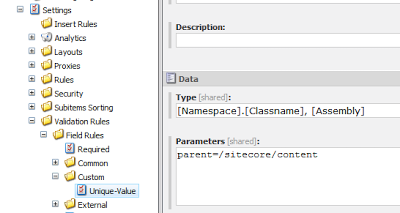Sitecore is a very extensible and flexible CMS that allows you to implement and enforce all kinds of business rules. But just because you can, does not always mean you should. URL generation for SEO is one example of what I think should be left to the editors.
The way I've seen SEO-friendly
URL enforcement implemented varies for some reason, but generally the rules
implemented are something in the line of replacing all spaces in item names with
hyphens so that ugly URLs like:
become pretty URLs like:
The concept of enforcing
SEO-friendly URLs has been bothering me for a while now. It started while working
on an implementation that was not as straight-forward as I expected. I
ended up using development time to discover all the enforcement rules. If you
find yourself having to implement some custom hook into the URL resolver or
write a hidden service that generates the desired URL, you are asking for
trouble. And most importantly, you're doing it wrong!
Sitecore has a built-in model
for doing replacements, and it works reasonably well.
Simply add replacement rules in
the
<encodenamereplacements> … </encodenamereplacements> of the
web.config. Then to have this work successfully you would have to make absolutely
sure users cannot create item names that have replacement characters in them.
If you don't, you are sure to have an item that cannot be resolved at some
point. The illegal characters setting in the Web.config- <setting
name="InvalidItemNameChars" … /> allows you to do just that. For
example, if you are replacing spaces with hyphens, you would add the
replacement rule, and then add the hyphen as an invalid character in an item
name.
With all that being said, I feel that developers should stay away from these rules to begin with. Changing the
"InvalidItemNameChars" setting could potentially limit the
extensibility of your Sitecore solution, disabling you from installing modules
that contain now "invalid" item names (or at least causing you
headaches when you try to). I've read blog posts that emphasize that
editors in general would prefer that SEO-friendly URLs are enforced so that
they wouldn't have to take the time to set them correctly.
If I were an editor though, it
would take me less time and less frustration if I could just name my item
exactly like it was going to appear in the URL rather than remember all the
replacement rules that would go on behind the scenes. It is only fair to your
solution and fair to your future users to let SEO-friendly URLs be managed by
the user in the user interface. Empower and educate your users rather than
restrict them.
